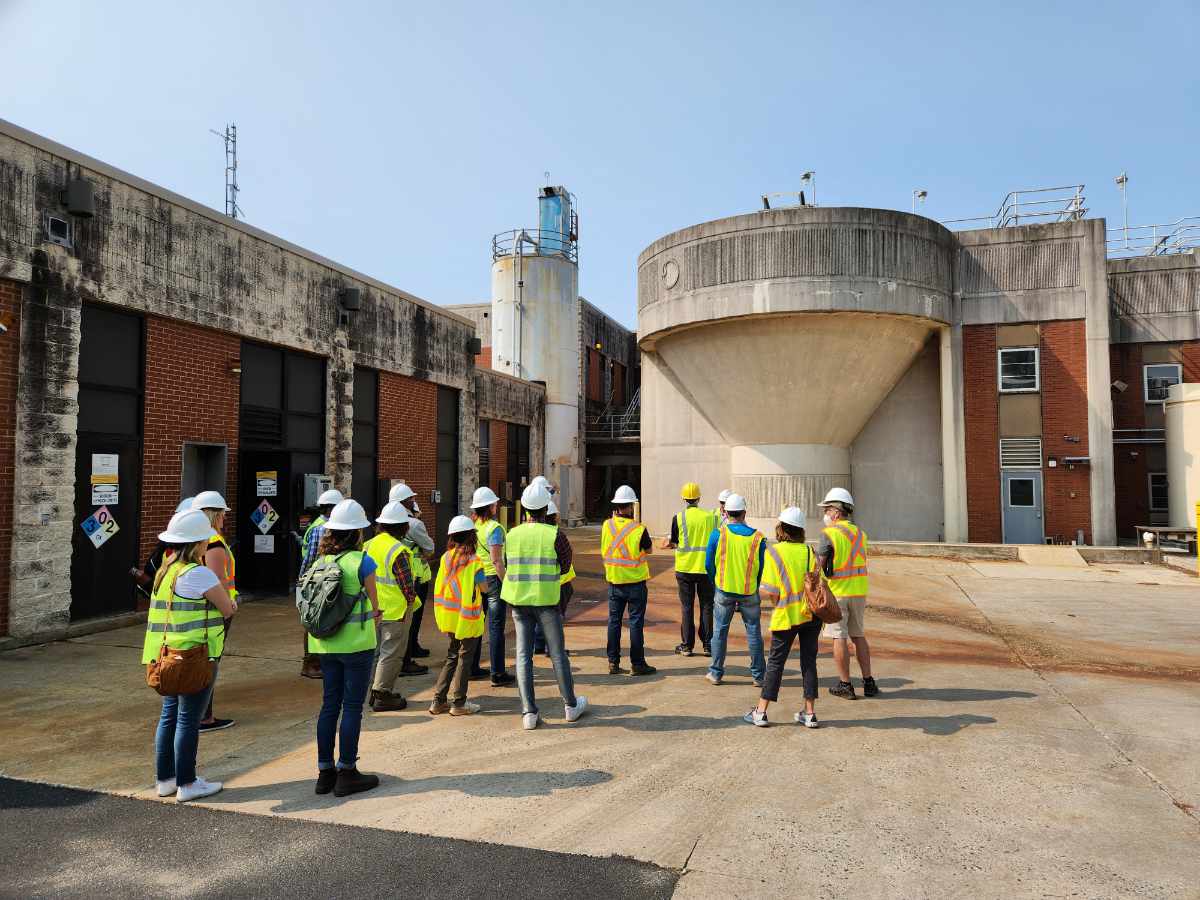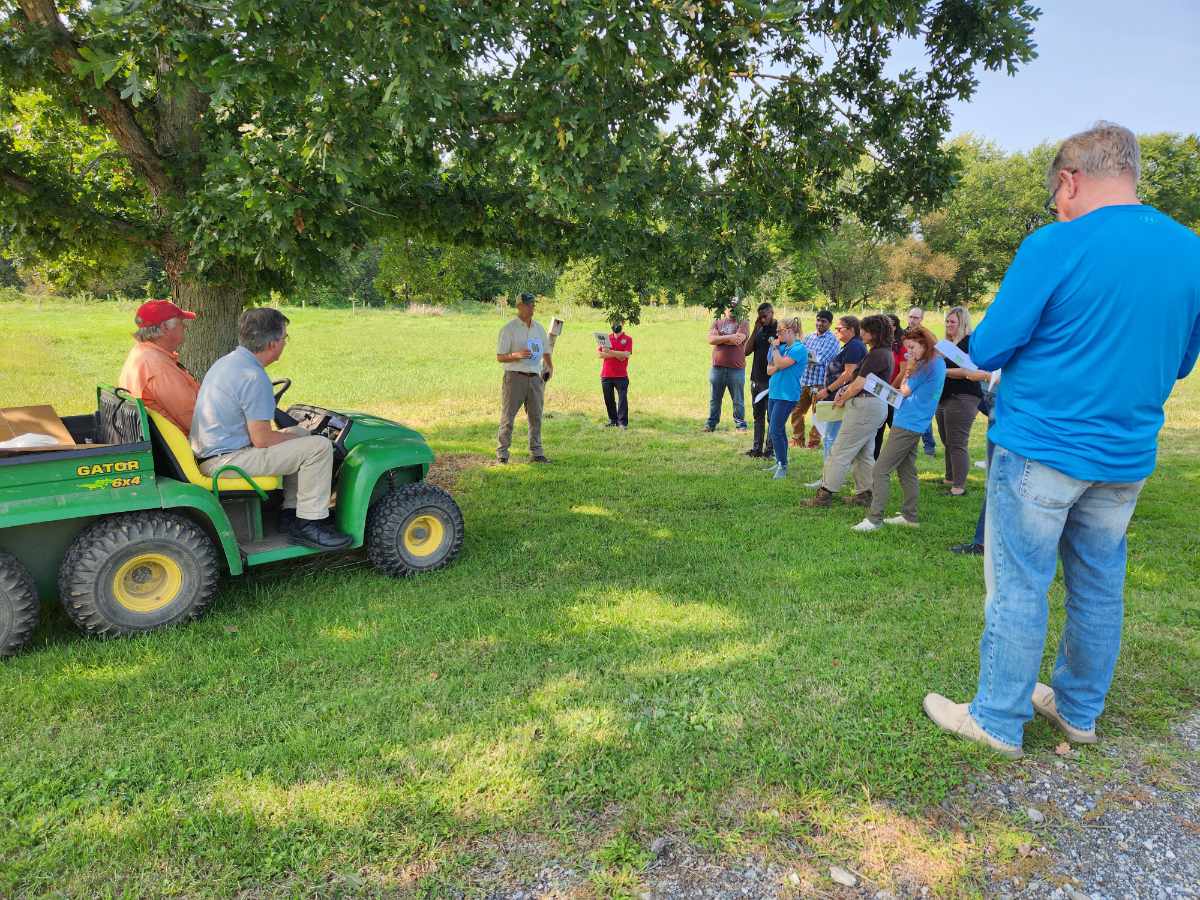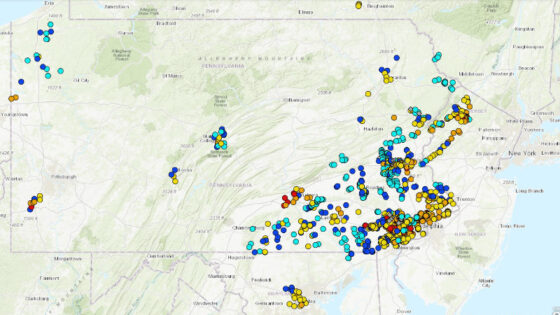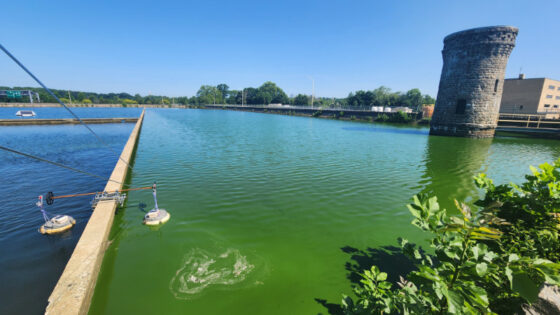Overlook Park Showcases Sustainable Landscaping
Overlook Park in Lancaster, Pennsylvania, is getting an eco-makeover. Volunteers gathered there on October 18 to add native plants and shrubs to the public space that hosts hundreds of visitors each day. In the park’s pollinator garden, the volunteers planted Joe Pye weed, boneset, and Culver’s root. They also planted native shrubs in the streamside forest, including buttonbush, winterberry, and possumhaw viburnum.
This is the fourth season volunteers have worked on the site as part of a multi-organization project. The goal is to create an eight-acre riparian forest and pollinator garden near the Little Conestoga Creek, which is part of the Chesapeake Bay watershed. The forest, garden, and educational signage will show park visitors how proper care of diverse native trees, shrubs, and perennials can beautify open spaces, create wildlife habitat that supports local agriculture, and reduce water pollution in ways that grass lawns and exotic plant species cannot.
“It’s a public space, but it’s also an inspirational space. We hope that visitors will be inspired by what they see and apply what they learn in their own yards and gardens,” says Lamonte Garber, watershed restoration coordinator.
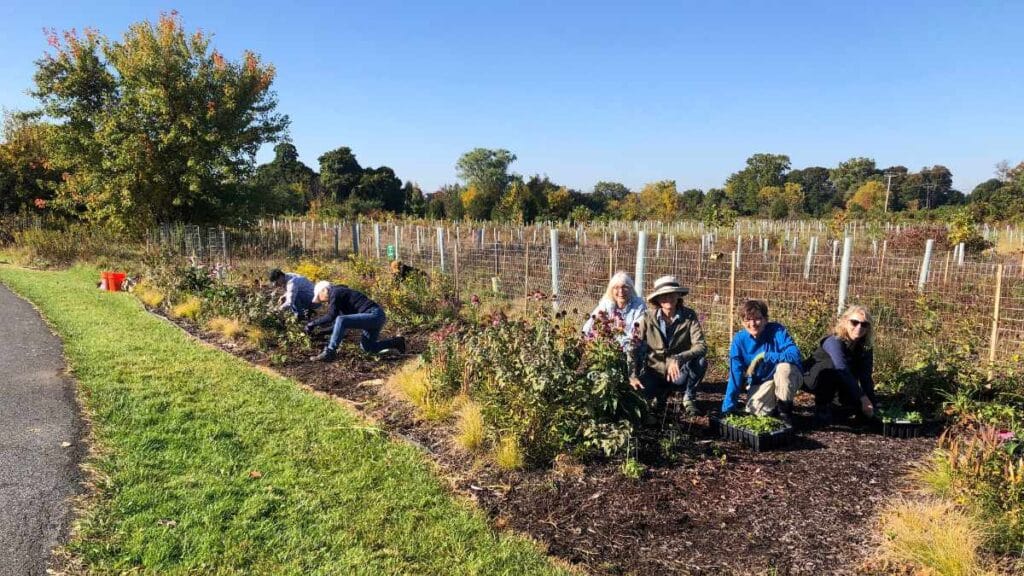
Stroud Water Research Center, Manheim Township, Lancaster Clean Water Partners, and Alliance for the Chesapeake Bay are leading the project with support from many other organizations: Chesapeake Bay Foundation, Pa. Department of Conservation and Natural Resources, Penn State Agriculture and Environment Center, Lancaster County Conservation District, LandStudies, Inc., and many others. DCNR is funding the project. Edward Kilbourn is providing additional funding.
Watch Lamonte Garber speak about the project in an ABC27 segment on the park’s first volunteer planting in October 2021.
Church Hosts Creation Care Tree Planting
Volunteers planted 40 trees and shrubs on the hillside near Muddy Run at Ridgeview Mennonite Church in Gordonville, Pennsylvania, on October 12. Wills Curley, the Stroud Center’s watershed restoration program coordinator, was on site to share guidance on proper tree planting and care.
Katie Ruth from Interfaith Partners for the Chesapeake worked with the Stroud Center and the church to plan the project.
The group focused on flowering and mast producing species like hazelnut, persimmon, and serviceberry. Church member Heidi Lonkosky led the volunteer effort after creating a pollinator garden next to the hillside and plans to incorporate flowering forbs and understory plants like goldenrod into the recent planting.
The Stroud Center provided the trees and shrubs, which were sourced from Octoraro Native Plant Nursery.
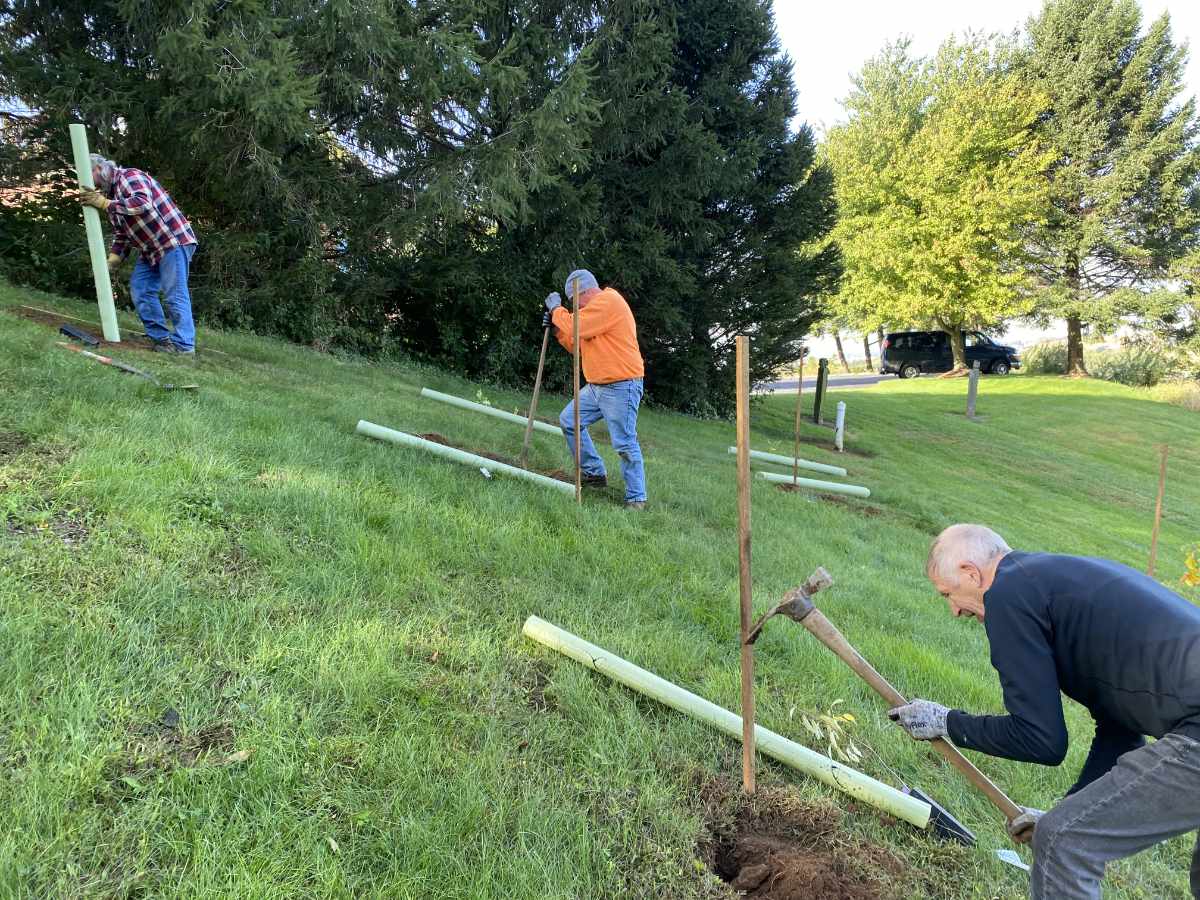
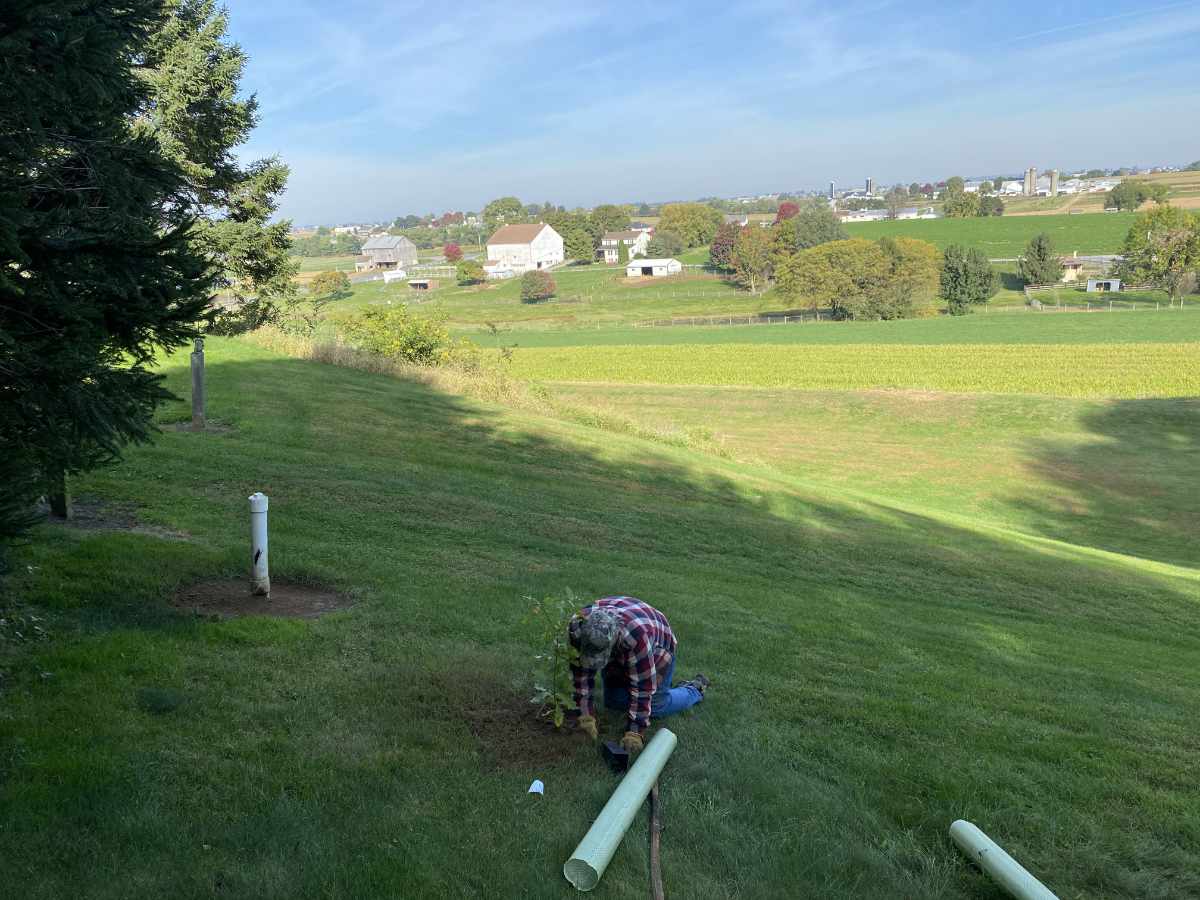
Edible Forests Project Draws International Visitors to the Stroud Center
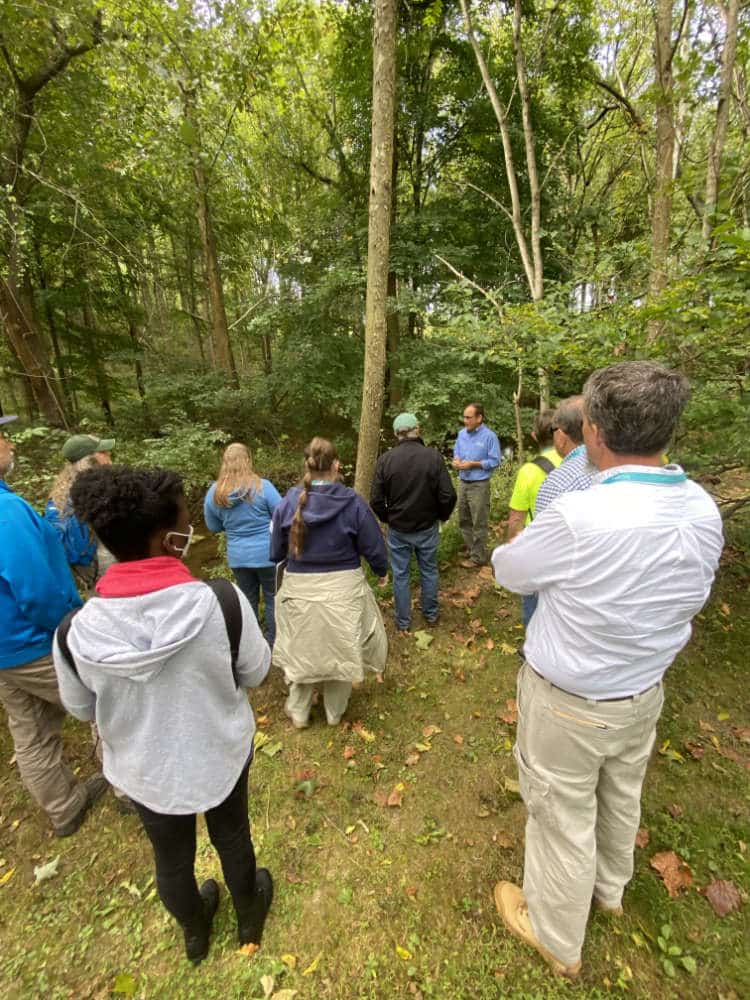
A group of foresters from 10 states and two continents visited the Stroud Center September 24 to learn about research on how agroforestry might benefit the health of freshwater streams while also producing profitable crops.
Lamonte Garber spoke to the group from the Society of American Foresters about the importance of healthy streams and the impact farmers can have on them.
Audrey Epp Schmidt from Propogate Ventures discussed the agroforestry project, which has provided farmers with grants to plant a mix of native fruit and nut trees (as well as ornamentals) to generate income and at the same time enhance soil health and reduce stormwater runoff to nearby waterways.
Water Pros Learn About Farming for Healthy Streams and Soils
Water professionals on the Christina Basin Task Force annual bus tour, held on September 16 and hosted by Brandywine Red Clay Alliance, joined the Stroud Center’s John Jackson, Ph.D., and David Wise on a Chester County farm to learn about efforts to improve soil health and water quality in the Red Clay Creek watershed. Restoration activities discussed included reforestation, tree care, cover cropping, and other practices that are part of Stroud Center research trials.
